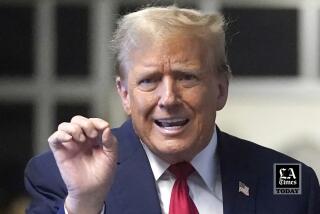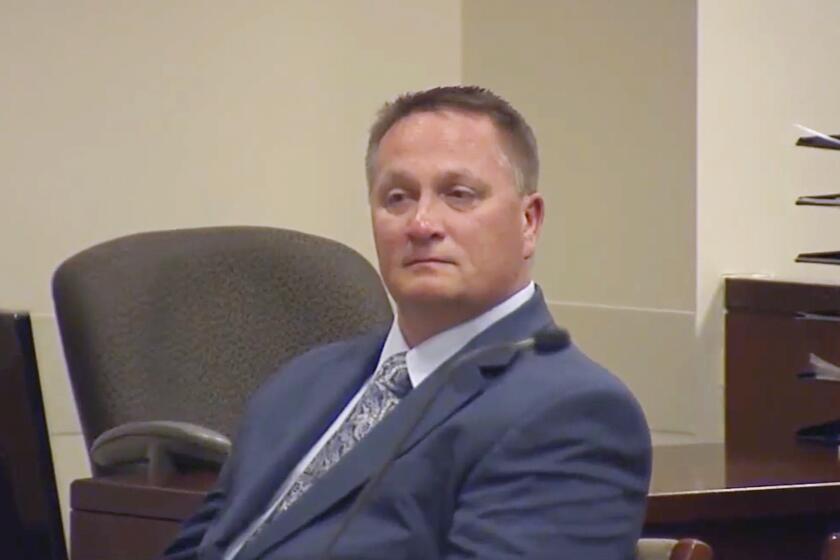Shift of opinion may soften U.S.’s Cuba policy
Washington’s hawkish policy toward Cuba, a durable legacy of the Cold War, is under pressure from pronounced shifts in U.S. public opinion and in Congress, amplified by the election of Barack Obama.
Obama’s presidency raises the prospect of significant policy changes because of his campaign promises to consider talks with Havana and to lift restrictions on the ability of Cuban Americans to travel and send money to the island.
In addition, there are new signs that many Cuban Americans, whose anti-Castro fervor has sustained a tough approach, no longer favor the economic embargo that has been the policy’s main ingredient. Congress is expected to press for reform next year as more Democrats enter and some hard-line Republicans retire.
Advocates of isolating Cuba “have been losing a lot of their mojo here,” said Rep. Jeff Flake (R-Ariz.), who has long advocated greater engagement with Cuba.
Although he is willing to ease the U.S. stance, Obama is considered unlikely to move to swiftly end the economic embargo when he thinks it still represents leverage for change by the Cuban government.
The embargo, the longest-lasting in modern history, was imposed in 1962, after Fidel Castro’s government seized private property and imposed authoritarian rule following the 1959 revolution. Polls show that Americans, including Cuban Americans, now view the embargo as a failure.
During the campaign, Obama was specific about his plans for Cuba. Testing old assumptions that a tough approach was needed to win Florida, he promised that as president, he would allow Cuban Americans to visit relatives and send money without limits.
U.S. rules, tightened by the Bush administration in 2004, restrict families to one visit every three years and limit remittances to $300 every three months.
Obama also said he was open to meeting with Cuban President Raul Castro, who succeeded brother Fidel, if it appeared from lower-level talks that such a meeting would be worthwhile. But at the same time, he has said he favors the embargo as a means of pressuring the Cuban government to take steps toward reform, such as releasing political prisoners.
Obama’s advisors, many of whom have long advocated an overhaul of Cuba policy, said his statements mean that he is taking the first cautious steps toward reform and may do more later, depending in part on the Cuban response.
Obama received just 35% of the Cuban American vote, but won Florida by 51% to 48%, which provides him leeway to adjust policy without fearing he might lose the state in a re-election campaign.
There are signs that opinion in Florida is drifting in favor of reform. A recent poll by Florida International University found for the first time that a majority of Cuban Americans wants to end the embargo.
In Congress, embargo opponents, including farm and business interests eager to expand into a nearby market, are planning legislation for next year.
They intend to push for complete removal of restrictions on U.S. travel to Cuba, a step they believe would increase pressure within Cuba for reform. Also expected is legislation to make it easier for U.S. business to trade with Cuba.
Still, reform advocates acknowledge that anti-Castro lobbyists remain an active political force. Jake Colvin, vice president of the pro-trade National Foreign Trade Council, said that despite expected reform moves, “this continues to be a tough issue for the Democratic leadership.”
He and other advocates place most of their hopes on the incoming Obama administration, which can ease many restrictions through executive power. For example, the administration could greatly expand general travel by allowing religious, educational and other groups to visit. It also could grant waivers to embargo rules that would allow the sale of U.S. products such as heavy construction equipment.
But experts said the situation leaves a large part of what happens next up to Havana. Many say that although some Cuban officials clearly want the cash and legitimacy that closer U.S. ties could bestow, others fear that engagement would cost them control over their population, and perhaps their revolution.
“They’re never going to be ready to change, because what they want is to remain in power,” said Ninoska Perez Castellon, director of the conservative Cuban Liberty Council and a Miami radio talk show host.
Flake argued that the Obama administration shouldn’t condition U.S. reforms on good Cuban behavior. When relations have begun to thaw in the past, the Cuban government has reacted with a provocative act, such as mass arrests, intended to force a U.S. pullback.
Instead, Flake said the U.S. should open travel and investment, betting that as the government slowly moves toward a Chinese model of greater economic freedom, it won’t be able to resist the money that engagement would bring.
“You hope that in the end, their desire for the revenue just overwhelms their reluctance,” Flake said.
--
More to Read
Start your day right
Sign up for Essential California for news, features and recommendations from the L.A. Times and beyond in your inbox six days a week.
You may occasionally receive promotional content from the Los Angeles Times.







